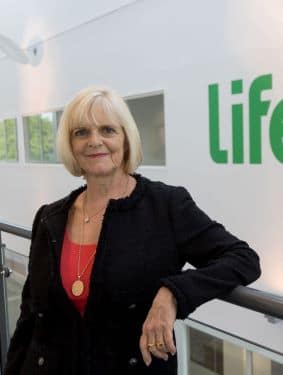Project will identify new potential therapeutics for Amyotrophic Lateral Sclerosis (ALS) and Frontotemporal Lobar Degeneration (FTLD)
London, UK, 14 September 2015: A project to identify new agents capable of stimulating clearance of a protein that forms aggregates in neurons of patients with Amyotrophic Lateral Sclerosis (ALS) and Frontotemporal Lobar degeneration (FTLD) has received funding worth £305,000 from the Dementia Consortium.
ALS (also known as motor neurone disease or Lou Gehrig’s Disease) and FTLD are characterised by the formation of cytoplasmic inclusions of misfolded TAR DNA-binding protein 43 (TDP-43) which affect the function of neurons. MRC Technology (London, UK) and the International Centre for Genetic Engineering and Biotechnology (ICGEB, Trieste, Italy) aim to identify agents capable of clearing misfolded proteins, which could form the basis of future drug development programmes.
Researchers at ICGEB have developed a novel assay system to test potential drug candidates for their ability to clear aggregated TDP-43 and will now investigate new active agents and characterise their mechanism of action. MRC Technology will develop cellular assays and carry out High Content Screening using its compound libraries, and hits will be confirmed by ICGEB in both in vitro and in vivo behavioural models.
Dr Marco Baralle, Group Leader, Biotechnology Development, ICGEB, commented: “Our initial research into TDP-43 has showed promising results, with some compounds able to enhance aggregate clearance by more than 50% and fully restore TDP 43 function. This funding will allow us to progress our research in collaboration with MRC Technology to the next stage.”
Dr Justin Bryans, Director of Drug Discovery at MRC Technology said: “Combining the experience of ICGEB and Alzheimer’s Research UK, and MRC Technology’s expertise in drug discovery and translation, means we can progress promising science from academia into effective new treatments for patients.”
Dr Eric Karran, Director of Research at Alzheimer’s Research UK, added: “FTLD is a rare form of dementia, but one that disproportionately impacts people under 65. Typical symptoms include behavioural and personality changes, as well as a lack of social awareness. Managing these symptoms can be incredibly challenging and we’ve gone too long without a therapy that can halt nerve cell damage in the brain. By combining expertise through the Dementia Consortium, we hope to accelerate progress from academic laboratories across the world into much sought-after treatments in the clinic.”
The Dementia Consortium is a unique £3m drug discovery collaboration between Alzheimer’s Research UK, MRC Technology and the pharmaceutical companies Eisai and Lilly. By uniting expertise, this focused cash injection will bridge the gap between academic research and the pharmaceutical industry in the search for new drugs to slow the development of neurodegenerative diseases that cause dementia. The Dementia Consortium is open to global research teams with innovative targets that need accelerating through the drug discovery process. For further information please visit http://www.dementiaconsortium.org/.

